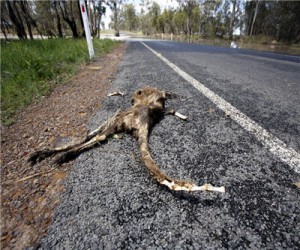Casablanca attends high school: Marketing 101
posted on
Aug 19, 2014 10:01AM

Black Horse deposit has an Inferred Resource Now 85.9 Million Tonnes @ 34.5%


The industry will die without a strong pipeline of projects
Casablanca attends high school: Marketing 101
Will Casablanca make the same mistake for Cliffs as BHP is making by a "spinoff of non-core operations" through short-sighted more immediately profitable impulses or short-term cost reduction strategies?
Cliffs needs to diversify away from iron ore by selling Bloom Lake and use that capital to collaborate with it's minority joint-venturer to move the Ring of Fire Chromite Project out of the courts and into development. First Nations and both levels of government will gladly produce agreements and funding.
Diversification is a corporate strategy to enter into a new market or industry which the business is not currently in, whilst also creating a new product for that new market. Product diversification involves addition of new products to existing products either being manufactured or being marketed. Expansion of the existing product line with related products is one such method adopted by many businesses. Diversification usually requires a company to acquire new skills, new techniques and new facilities.
KWG Resources, Cliffs minority joint-venturer, continues their development and commercialization the new method of production of chromium iron alloys from chromite ore and of production of low carbon chromium iron alloys, a crucial part of the diversification strategy.
Will Casablanca pass the basic Marketing 101 test?
mining.com
By: Frik Els
August 19, 2014
The BHP show obscures Australian mining's deeper problems
In a trenchant piece for Trading Floor Adam Courtenay argues that with all the focus being placed on BHP's spinoff of what it now considers non-core operations, the Australian industry is losing sight of much more fundamental issues:
"Australia’s base metals mining industry – we’re talking gold, silver, copper, nickel and uranium – is suffering unnecessarily, not because the markets for them have weakened but because the appetite for their discovery has been replaced by more immediately profitable impulses or short-term cost reduction strategies.
"According to Dr Rob Hough, one of the country’s leading mineralogists, China “will still wish to zinc-coat its cars; it will need more copper for electronics and will want to buy more physical gold and all at a rate that is way beyond what we can even hope to produce now”.
Australia’s mining exploration investment has dropped from 21% of global share in 1996, to 12% today
"In a recent paper from the University of Western Australia’s Centre for Exploration Targeting – Where are Australia’s Mines of Tomorrow? – authors Richard Schodde and Pietro Guj estimated that about half of Australia’s non-bulk commodities resources will expire in the next seven to 18 years. They argue that if it takes seven years on average to convert a discovery into an operating mine, the industry will die without a strong pipeline of projects moving to development stage.
"Hough says the challenge for industry, research bodies, and government agencies is clear – miners have to look just a little bit deeper and scratch a little harder. Australia’s mining exploration investment has dropped from 21 per cent of global share in 1996, to 12 per cent today. By comparison Canada’s has increased from 14 percent to 18 per cent over the same period, while Africa, the Asia-Pacific region and Latin America have increased their expenditures exponentially."
mining.com
By: Frik Els
August 19, 2014
The BHP show obscures Australian mining's deeper problems